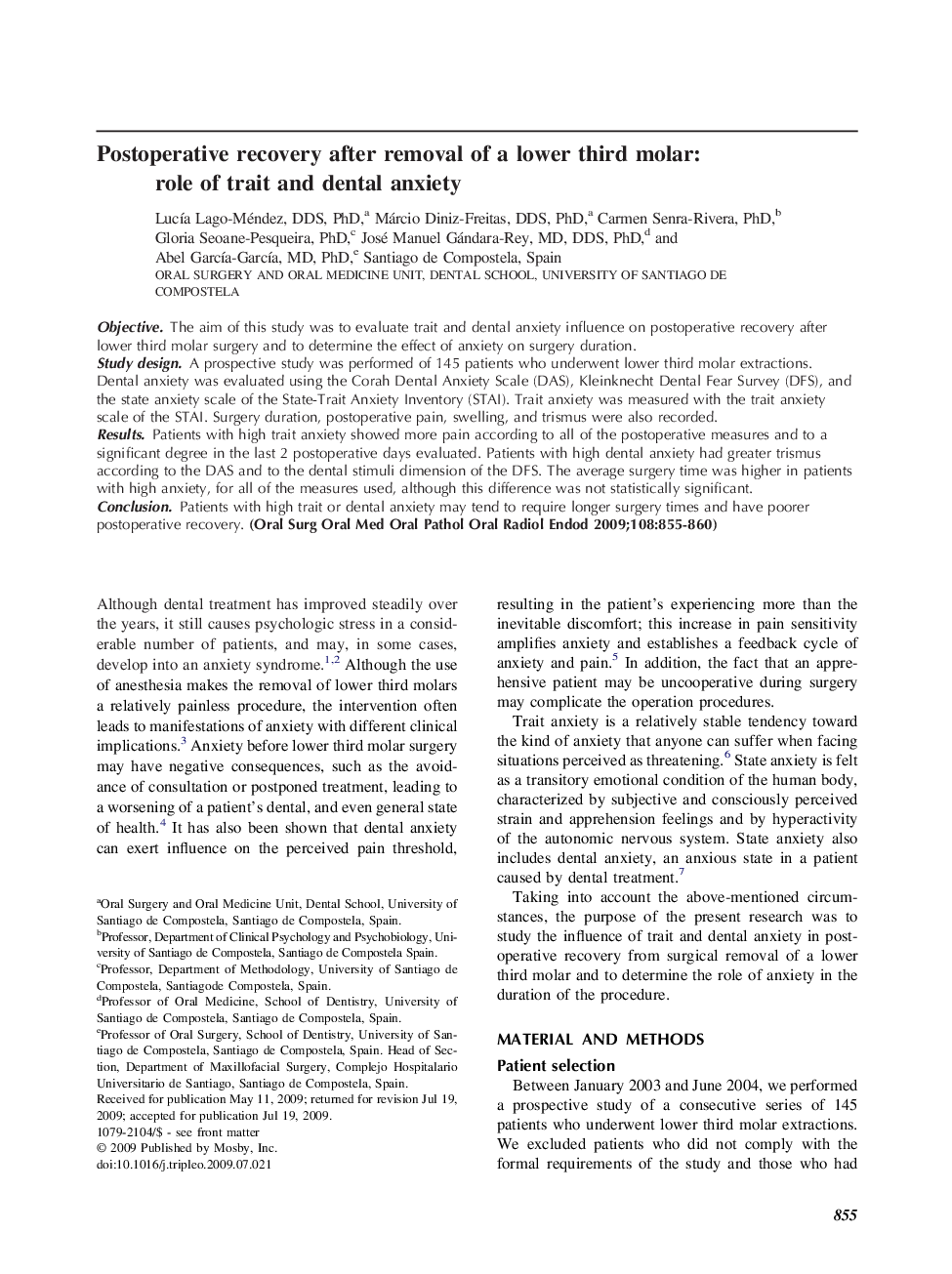| Article ID | Journal | Published Year | Pages | File Type |
|---|---|---|---|---|
| 3167778 | Oral Surgery, Oral Medicine, Oral Pathology, Oral Radiology, and Endodontology | 2009 | 6 Pages |
ObjectiveThe aim of this study was to evaluate trait and dental anxiety influence on postoperative recovery after lower third molar surgery and to determine the effect of anxiety on surgery duration.Study designA prospective study was performed of 145 patients who underwent lower third molar extractions. Dental anxiety was evaluated using the Corah Dental Anxiety Scale (DAS), Kleinknecht Dental Fear Survey (DFS), and the state anxiety scale of the State-Trait Anxiety Inventory (STAI). Trait anxiety was measured with the trait anxiety scale of the STAI. Surgery duration, postoperative pain, swelling, and trismus were also recorded.ResultsPatients with high trait anxiety showed more pain according to all of the postoperative measures and to a significant degree in the last 2 postoperative days evaluated. Patients with high dental anxiety had greater trismus according to the DAS and to the dental stimuli dimension of the DFS. The average surgery time was higher in patients with high anxiety, for all of the measures used, although this difference was not statistically significant.ConclusionPatients with high trait or dental anxiety may tend to require longer surgery times and have poorer postoperative recovery.
